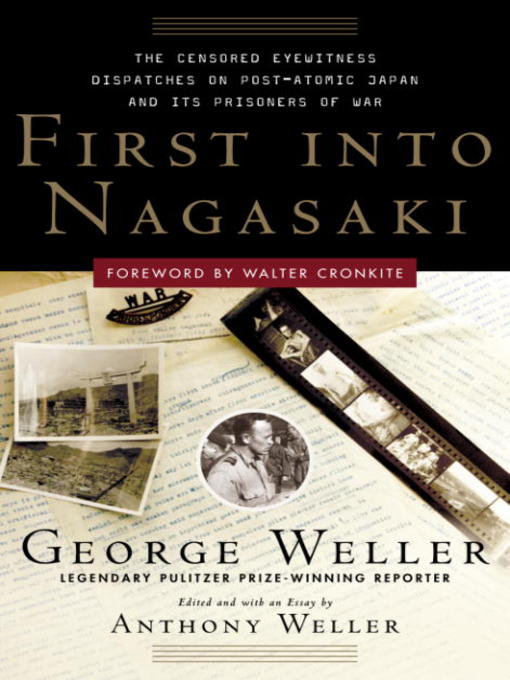
First Into Nagasaki
The Censored Eyewitness Dispatches on Post-Atomic Japan and Its Prisoners of War
کتاب های مرتبط
- اطلاعات
- نقد و بررسی
- دیدگاه کاربران
نقد و بررسی

October 9, 2006
George Weller, a Pulitzer Prize– winning war correspondent for the Chicago Daily News
, entered Nagasaki on September 6, 1945, four weeks after the atomic blast leveled the city. The first Westerner to tour the city's ruins, he talked with doctors at the makeshift hospitals and scoured the countryside in search of the POW camps scattered across southern Japan over several weeks. His eyewitness dispatches were intercepted and buried, however, by Gen. Douglas MacArthur's censors. Weller saved his carbons, but they disappeared in the hectic months after the war and remained lost for 60 years, until rediscovered after his death by his son Anthony, himself a journalist and a novelist (The Garden of the Peacocks
). Weller's dispatches from Nagasaki are riveting even at this late date, though they are only a small part of the book. His extensive interviews with POWs mostly reinforce what we already know about their brutal treatment. The book also offers an account of one of the so-called "death ships" that carried POWs from the Philippines to Japan, and a 1966 essay on Weller's experiences in Nagasaki. On balance, Weller's dispatches are a welcome addition to the historical record.

Starred review from February 26, 2007
Rudnicki reads Weller's reports of life in the ravaged city of Nagasaki in the final moments of World War II with a quiet authority—one perfectly suitable for the veteran journalist's forceful, never-before-published testimony of the atomic bomb and its terrible destruction. Traveling through a defeated, battered Japan, Weller's dispatches—originally censored by Gen. Douglas MacArthur—reveal the results of a war of ceaseless brutality and its seemingly inevitable atomic finale. Weller meets ordinary Japanese brutalized by the war and explores a country only just emerging from its worst moments. Rudnicki carefully assesses each of Weller's words (collected by his son), preserving their gravity and their well-measured, colorful authority. His reading gives a punch and immediacy to Weller's solidly constructed first-person reports on the horrors of war. The result forcefully documents a superb war correspondent's eyewitness testimony. Simultaneous release with the Crown hardcover (Reviews, Oct. 9).

























دیدگاه کاربران